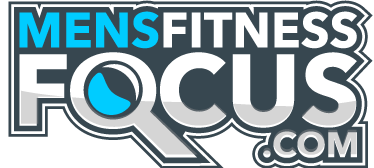8 tips for living a healthier, disease-free life
08/28/2018 / By Michelle Simmons

An average person can live for up to 71.4 years, according to the World Health Organization (WHO), but how many of those years are actually spent living? If you want to have a healthier and disease-free life, follow these eight simple tips. (h/t to WakingTimes.com.)
- Consume complete proteins – Proteins are needed by the body for proper muscle elasticity and strength building, so try to include enough amounts of protein in your diet as much as possible. Protein is abundant in foods such as milk, eggs, and meats. Meanwhile, for vegetarians or vegans, you can get proteins from food such as quinoa, buckwheat, hempseed, chia, soy, mycoprotein (quorn), rice and beans, seitan, spirulana with grains or nuts, hummus and pita, and peanut butter. Lack of protein in the body will lead to improper tissue repair, lesser production of hormones, enzymes, and other body chemicals.
- Get sufficient vitamins – A balanced diet typically provides enough vitamins, but you can also supplement your diet with tablets or pills. Vitamins help the body grow and function the way it should. Not getting enough vitamins can negatively impact on your body, with typical symptoms such as tiredness, loss of appetite, mood swings, or chapped lips. All in all, there are 13 vitamins – vitamins A, C, D, E, K, and the B vitamins: thiamine, riboflavin, niacin, panthothenic acid, biotin, B6, B12, and folate. Different vitamins have different functions; some help you fight infections, whereas others support normal function of nerve cells, provide energy, or help blood flow properly. The two most common vitamin deficiencies are B12 and D3. Vitamin B12 is important in forming DNA, producing red blood cells, and functioning of neurons. This vitamin is common in animal products such as meat, poultry, fish, shellfish, eggs, and dairy products. Meanwhile, vitamin D3 is crucial in bone growth and mood regulation. Sunlight can help the body produce vitamin D3, and it can also be obtained from organic milk and fish.
- Go organic – Refrain from eating GMOs and artificial food as they can be extremely dangerous to the body. They may cause infertility, immune problems, accelerated aging, flawed insulin regulation, and changes in main organs and digestive system.
- Take natural medicine instead of pharmaceutical drugs – Studies today continue to uncover the many health issues associated with modern medicine. A study found that one in every three drugs approved by the Food and Drug Administration (FDA) were linked to significant safety issues after they were tested on patients. On the brighter side, there are increasing number of research on different medicinal herbs such as cannabis and turmeric.
- Be active and keep moving – Some people may find it hard to exercise because they lack time or motivation. It may be hard at first, but exercising can be rewarding. It can help you lose weight, tone muscles, decrease risk of heart disease, boost energy and mood, and promote good sleep.
- Have enough sleep and maintain a regular sleep schedule – Having a regular sleeping pattern is as important as having enough sleep. This is because your sleep schedule helps regulate the nervous system and circadian rhythm.
- Avoid smoking – Some people still smoke despite knowing that it gravely affects their body. According to the Centers for Disease Control and Prevention (CDC), smoking cigarettes causes over 480,000 deaths every year in the United States or about one in every five deaths. If you want to live longer and disease-free, the decision to quit smoking may be one of the best ones you will ever make. Doing so decreases the risk of smoking-related diseases and prolongs your lifespan. Smokers have higher chances of developing cardiovascular and respiratory diseases and cancer.
- Lessen screen time – Studies have shown that too much screen time impacts our health. Studies showed that watching television or using smartphones adversely impacts social skills, sleeping ability, attention, decision-making, and cognitive skills of a person.
Sources include:
style="display:block"
data-ad-client="ca-pub-8193958963374960"
data-ad-slot="6991125139"
data-ad-format="auto">
Tagged Under: disease prevention, disease-free life, healthier life, lifespan, live longer, longer life, old age



















